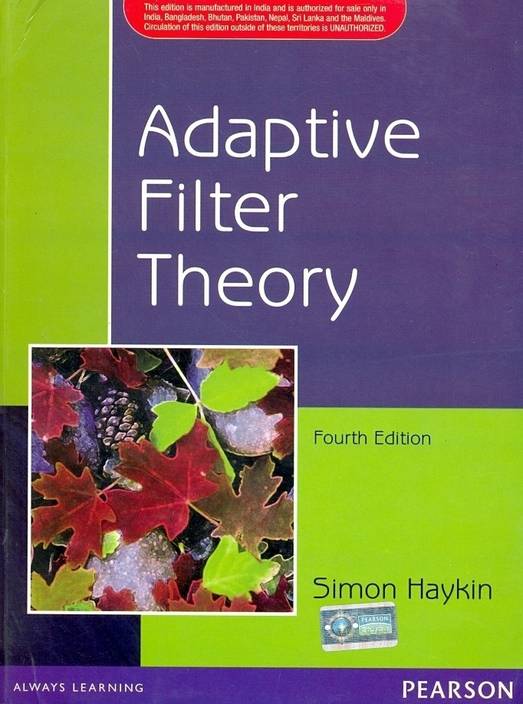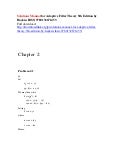

Haykin examines both the mathematical theory behind various linear adaptive.Adaptive filter theory - Simon S.' Adaptive Filter Theory' looks at both the mathematical theory behind various linear adaptive filters with finite-duration impulse response (FIR) and the elements of.Simon haykin adaptive filter theory pdf - WordPress.comsimon haykin. Instant download Solutions Manual for Adaptive Filter Theory 5th Edition Simon O. Haykin Product Descriptions. Adaptive Filter Theory, 5e, is ideal for courses in Adaptive Filters. Haykin examines both the mathematical theory behind various linear adaptive filters and the elements of supervised multilayer perceptrons. From these results we can immediately see that @u @x = @v @y @v @x = @u @y In other words, the product term w kp( k) satisfies the Cauchy-Riemann equations, and so this term is analytic.

- Adaptive Filters Introduction The term adaptive filter implies changing the characteristic of a filter in some automated fashion to obtain the best possible signal quality in spite of changing signal/system conditions. Adaptive filters are usually associated with the broader topic of statistical signal processing.
- Adaptive Filters Simon Haykin McMaster University Hamilton, Ontario, Canada L8S 4K1 1. Introduction An adaptive filteris defined as a self-designing system that relies for its operation on a recursive algorithm, which makes it possible for the filter to perform satisfactorily in an environment where knowledge of the relevant statistics is.
- You are now in a position to complete all the exercises on Wiener filters except part (c) of the first two questions (from Haykin). This will be completed in the next lecture. 6: Completed Wiener filter using eigenvector basis, finished Wiener filter slides. Started Linear Prediction: FIR and IIR MMSE linear prediction.
- From these results we can immediately see that @u @x = @v @y @v @x = @u @y In other words, the product term w kp( k) satisfies the Cauchy-Riemann equations, and so.
Adaptive Filter Theory by Simon S. Haykin Book Summary:
Adaptive Filter Theory 5th Simon Haykin Pdf
Haykin examines both the mathematical theory behind various linear adaptive filters with finite-duration impulse response (FIR) and the elements of supervised neural networks. This edition has been updated and refined to keep current with the field and develop concepts in as unified and accessible a manner as possible. It: introduces a completely new chapter on Frequency-Domain Adaptive Filters; adds a chapter on Tracking Time-Varying Systems; adds two chapters on Neural Networks; enhances material on RLS algorithms; strengthens linkages to Kalman filter theory to gain a more unified treatment of the standard, square-root and order-recursive forms; and includes new computer experiments using MATLAB software that illustrate the underlying theory and applications of the LMS and RLS algorithms.